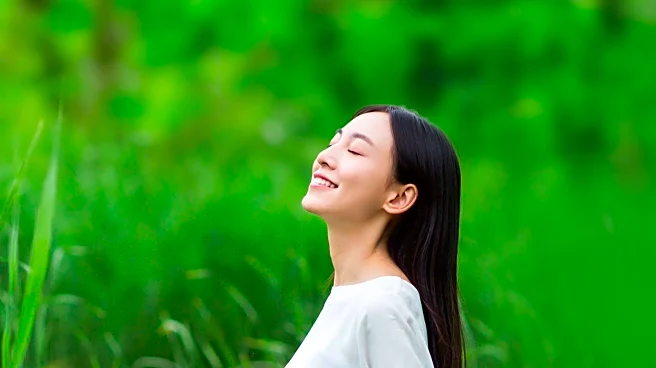What's Happening?
A study conducted by the Second Hospital of Shanxi Medical University has demonstrated that baicalin, a compound derived from traditional Chinese medicine, can alleviate oxidative stress injury in human umbilical vein endothelial cells. The research focused on the TNF-alpha-mediated MAPK/ERK1/2/MPO pathway, showing that baicalin effectively reduces oxidative stress-induced apoptosis and regulates protein expression levels. The study involved treating cells with hydrogen peroxide to induce oxidative stress, followed by baicalin treatment, which resulted in decreased apoptosis and improved cell viability.
Why It's Important?
Oxidative stress is a key factor in various diseases, including cardiovascular conditions. Baicalin's ability to mitigate oxidative stress in endothelial cells suggests potential therapeutic applications for conditions characterized by endothelial dysfunction. This research could lead to new treatments for preeclampsia and other oxidative stress-related diseases, improving patient outcomes and reducing healthcare costs associated with these conditions.
What's Next?
Further studies are needed to explore baicalin's effects in clinical settings and its potential as a therapeutic agent for oxidative stress-related diseases. Researchers aim to investigate its efficacy in human trials, which could lead to new treatment protocols for conditions like preeclampsia.
Beyond the Headlines
The study highlights the integration of traditional medicine with modern scientific research, offering insights into the potential of natural compounds in treating complex health issues. It also raises ethical considerations regarding the use of traditional medicine in contemporary healthcare.









